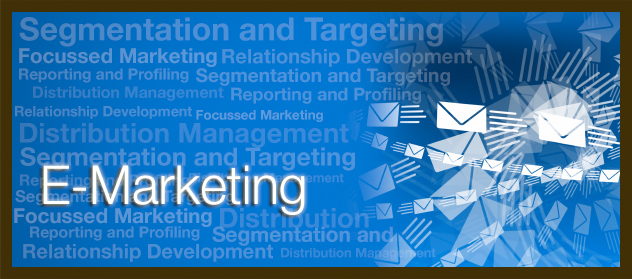You don’t need a massive marketing budget to attract clients as a business marketing consultant. With the right plan, clear messaging, and consistent effort, you can build a thriving consulting practice. Whether you’re just starting out or looking to grow your independent business, these smart and affordable strategies will help you stand out, connect with potential clients, and grow your reputation.

Content
1. Establish Your Personal Brand
Your brand is your promise. As a business marketing consultant, your brand should communicate your expertise, values, and the specific industries or clients you serve.
Think about what makes you different. Do you specialize in B2B strategy? Are you a content marketing pro? Craft a brand identity that highlights your niche and communicates trust and credibility.
2. Build a Professional Website
Your website is often your first impression—and it needs to do a lot of heavy lifting. A clean, professional website builds credibility and helps clients understand exactly what you offer.
Your website should include:
- A clear summary of your services
- Testimonials or case studies
- A lead form or contact option
Keep it mobile-friendly and make sure it loads quickly. A slow or outdated site can hurt your image.
3. Leverage Content Marketing
One of the most effective ways to build authority is to share valuable content that educates your audience. Start a blog, write LinkedIn articles, or even offer downloadable guides.
As a business marketing consultant, focus on solving real problems your clients face. Write posts like:
- “5 Marketing Mistakes Small Businesses Make”
- “How to Build a Marketing Funnel That Converts”
Content positions you as a thought leader—and helps with SEO.
4. Use Email to Stay Connected
Email marketing keeps you top of mind with current and prospective clients. Even a simple monthly newsletter can go a long way.
Your emails could include:
- Tips and trends in small business marketing
- Links to your latest blog posts
- Case studies or success stories
Use an email platform like Mailchimp or ConvertKit and keep your tone personal and professional.
5. Optimize Your Online Presence
Search engines are often the first place potential clients look. Ensure your website, Google Business Profile, and social profiles are optimized for the keywords people are searching—like “business marketing consultant near me” or “small business marketing expert.”
Use keyword-rich headlines, descriptive service pages, and location-based content to show up in local searches.
6. Tap into Social Media
Social platforms like LinkedIn, Twitter, and Instagram can help you build relationships and show off your personality. Share insights, comment on trends, and connect with other professionals in your space.
Post ideas:
- Behind-the-scenes looks at your work
- Short video tips
- Client success stories (with permission)
Remember: engagement is key—don’t just post, interact!
7. Network Like a Pro
Even in a digital world, word-of-mouth matters. Attend industry events, join local business associations, and take part in online communities.
Virtual and in-person networking can lead to referrals, partnerships, and even client leads.
8. Offer Free Value First
Before clients buy, they want to trust you. Offering free resources or consultations builds that trust.
Examples:
- A 15-minute strategy session
- A free marketing audit
- A downloadable “Marketing Roadmap for Small Business”
These build goodwill—and can lead to paid work.
9. Ask for Reviews and Referrals
Happy clients are your best advocates. Don’t be afraid to ask them to leave a review on LinkedIn or your Google Business Profile, or to refer you to others in their network.
A simple email can work wonders:
“I’ve really enjoyed working with you—if you know any other businesses that could benefit from marketing support, I’d love an introduction!”
10. Measure What Works—and Refine
Track where your leads come from, which blog posts get traffic, and which emails get opens. Use tools like Google Analytics, social insights, and email metrics to see what’s working.
Refine your strategy based on real data—this will save time and improve results.
Ready to Grow as a Business Marketing Consultant?
You don’t need to master every channel at once. Start with a few core strategies—like building a professional website and creating helpful content—and expand from there. Marketing is a process of testing, learning, and improving.
Looking for more resources to build your consulting business? Download our free guide: “The Independent Consultant’s Marketing Toolkit” and explore more expert tips on building a profitable, flexible consulting career.
Conclusion
Succeeding as a business marketing consultant doesn’t require a huge ad budget—it takes smart, focused marketing strategies tailored to your strengths and audience. From building a standout personal brand to leveraging digital tools like content marketing, email, and SEO, these 10 actionable tips will help you consistently attract clients and grow your consulting business. Whether you’re just starting out or leveling up your marketing game, this guide gives you the foundation to thrive.
Frequently Asked Questions
What does a business marketing consultant do?
A business marketing consultant helps companies improve their marketing strategies, reach target audiences, and increase revenue through effective campaigns.
How do I market myself as a consultant?
Focus on building a strong personal brand, creating a professional website, publishing helpful content, and leveraging networking and referrals.

Bradley attended Boston University where he received a Bachelor’s degree in Economics and Political Science as well as a Master’s degree in Business Administration from Columbia University Graduate School of Business (currently attending). He loves to write about everything business related.











